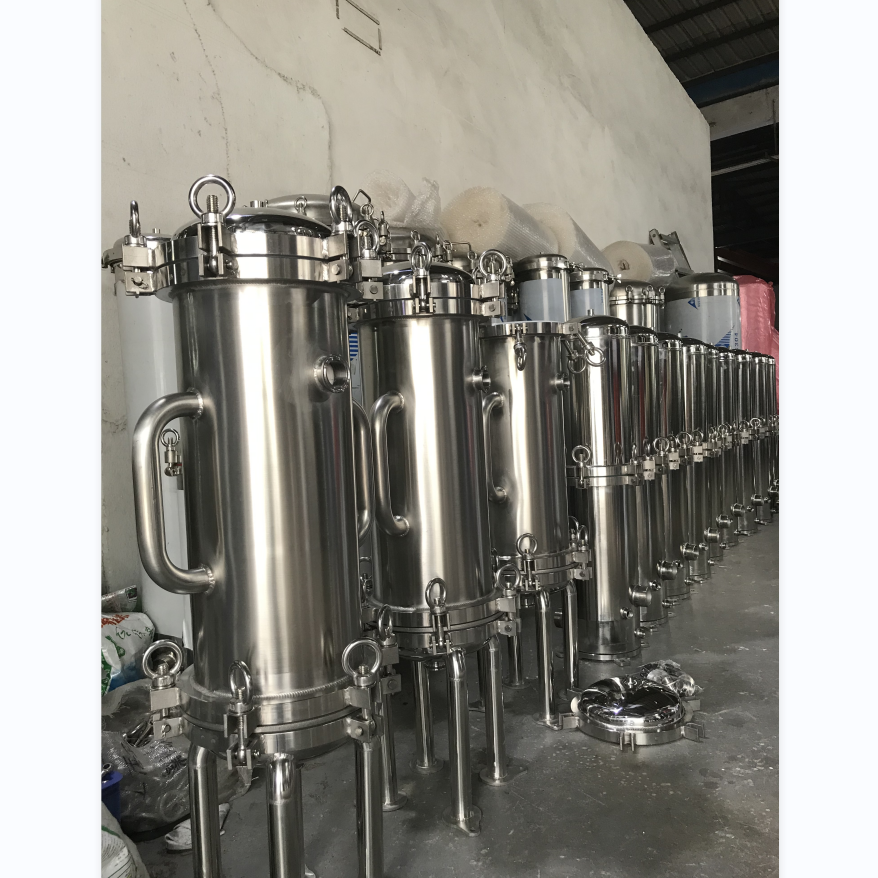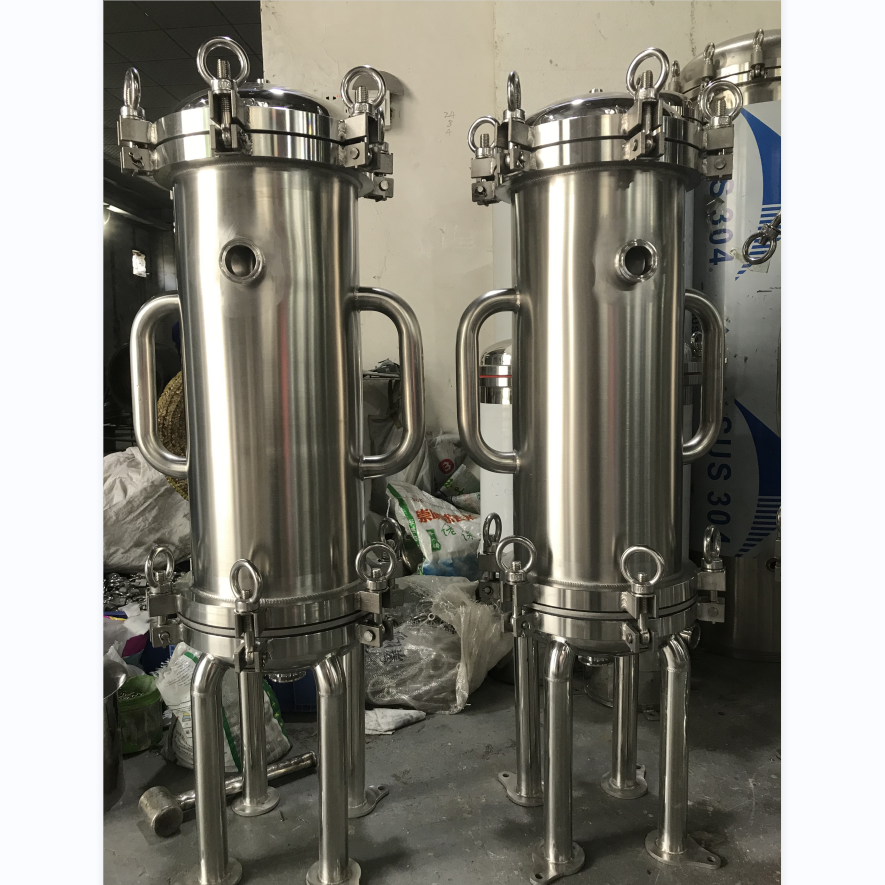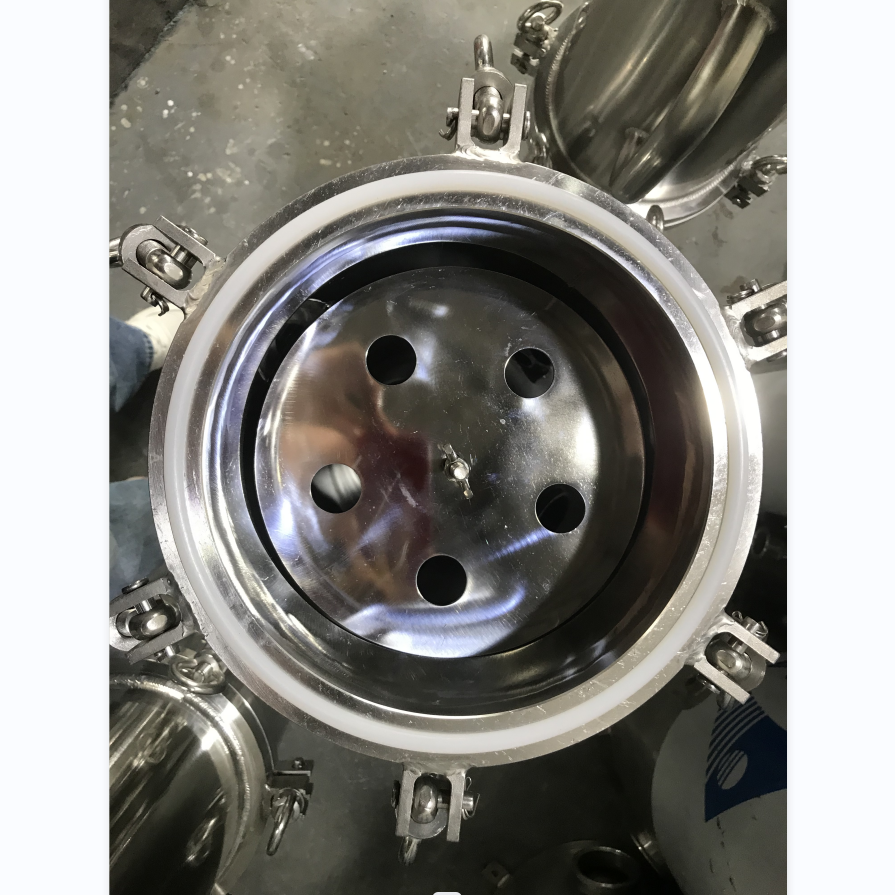25 Aug 2023
What is a precision filter? What is the role of precision filter?
Precision filter
A precision filter, also known as a microfiltration filter, is a type of filtration system used to remove solid particles and impurities from liquids. It operates by passing the fluid through a filter medium with very small pores, usually in the range of 0.1 to 10 microns in size. The filter medium can be made of various materials, such as woven fabric, non-woven fabric, ceramic, or metal.

Precision filters are commonly used in industries such as pharmaceuticals, food and beverage production, electronics manufacturing, and water treatment. They are effective in removing suspended solids, bacteria, and other contaminants from liquids, resulting in a cleaner and clearer product.
The choice of a precision filter depends on factors such as the desired filtration level, flow rate, and compatibility with the liquid being filtered. Some precision filters are designed for single-use and are disposable, while others are reusable and can be cleaned and reused. It is important to consider the specific requirements of your application and consult with a filtration expert to select the appropriate precision filter for your needs.

The primary role of a precision filter is to effectively remove solid particles and impurities from a liquid stream. It plays a crucial role in improving the quality and purity of the liquid by capturing and retaining contaminants that may affect its performance or cause potential harm in various industries. Here are some key roles of a precision filter:
1. Particle Removal: Precision filters are designed to remove suspended solids, such as dust, dirt, rust, and sediments, from the liquid. By trapping these particles, the filter prevents them from reaching downstream equipment or products, ensuring cleaner and clearer liquids.
2. Contaminant Removal: Precision filters can also remove other types of contaminants, including bacteria, microorganisms, algae, and larger organic matter. This is especially important in industries like pharmaceuticals and food production, where maintaining high levels of purity is critical.
3. Protecting Equipment: Precision filters act as a protective barrier for downstream equipment, such as pumps, valves, and membranes. By removing solid particles and impurities, they prevent clogging, scaling, or fouling that could damage or reduce the efficiency of the equipment.
4. Enhancing Product Quality: In many industries, the quality of the final product heavily relies on the purity of the liquid used during the manufacturing process. Precision filters help ensure that the liquid meets required standards, resulting in improved product quality and consistency.
5. Maintenance and Cost Reduction: By removing contaminants, precision filters can prolong the lifespan of equipment and reduce maintenance requirements. They minimize the risk of blockages, decrease downtime, and potentially reduce the need for costly repairs or replacements.

Overall, precision filters are essential components in various industries where the removal of solid particles and impurities is crucial for maintaining product quality, protecting equipment, and ensuring efficient operations.
Company:STARK Environmental Solutions Ltd.
Contact us Telephone:18520151000
Website:www.stark-water.com
Email:[email protected]
A precision filter, also known as a microfiltration filter, is a type of filtration system used to remove solid particles and impurities from liquids. It operates by passing the fluid through a filter medium with very small pores, usually in the range of 0.1 to 10 microns in size. The filter medium can be made of various materials, such as woven fabric, non-woven fabric, ceramic, or metal.

Precision filters are commonly used in industries such as pharmaceuticals, food and beverage production, electronics manufacturing, and water treatment. They are effective in removing suspended solids, bacteria, and other contaminants from liquids, resulting in a cleaner and clearer product.
The choice of a precision filter depends on factors such as the desired filtration level, flow rate, and compatibility with the liquid being filtered. Some precision filters are designed for single-use and are disposable, while others are reusable and can be cleaned and reused. It is important to consider the specific requirements of your application and consult with a filtration expert to select the appropriate precision filter for your needs.

The primary role of a precision filter is to effectively remove solid particles and impurities from a liquid stream. It plays a crucial role in improving the quality and purity of the liquid by capturing and retaining contaminants that may affect its performance or cause potential harm in various industries. Here are some key roles of a precision filter:
1. Particle Removal: Precision filters are designed to remove suspended solids, such as dust, dirt, rust, and sediments, from the liquid. By trapping these particles, the filter prevents them from reaching downstream equipment or products, ensuring cleaner and clearer liquids.
2. Contaminant Removal: Precision filters can also remove other types of contaminants, including bacteria, microorganisms, algae, and larger organic matter. This is especially important in industries like pharmaceuticals and food production, where maintaining high levels of purity is critical.
3. Protecting Equipment: Precision filters act as a protective barrier for downstream equipment, such as pumps, valves, and membranes. By removing solid particles and impurities, they prevent clogging, scaling, or fouling that could damage or reduce the efficiency of the equipment.
4. Enhancing Product Quality: In many industries, the quality of the final product heavily relies on the purity of the liquid used during the manufacturing process. Precision filters help ensure that the liquid meets required standards, resulting in improved product quality and consistency.
5. Maintenance and Cost Reduction: By removing contaminants, precision filters can prolong the lifespan of equipment and reduce maintenance requirements. They minimize the risk of blockages, decrease downtime, and potentially reduce the need for costly repairs or replacements.

Overall, precision filters are essential components in various industries where the removal of solid particles and impurities is crucial for maintaining product quality, protecting equipment, and ensuring efficient operations.
Company:STARK Environmental Solutions Ltd.
Contact us Telephone:18520151000
Website:www.stark-water.com
Email:[email protected]